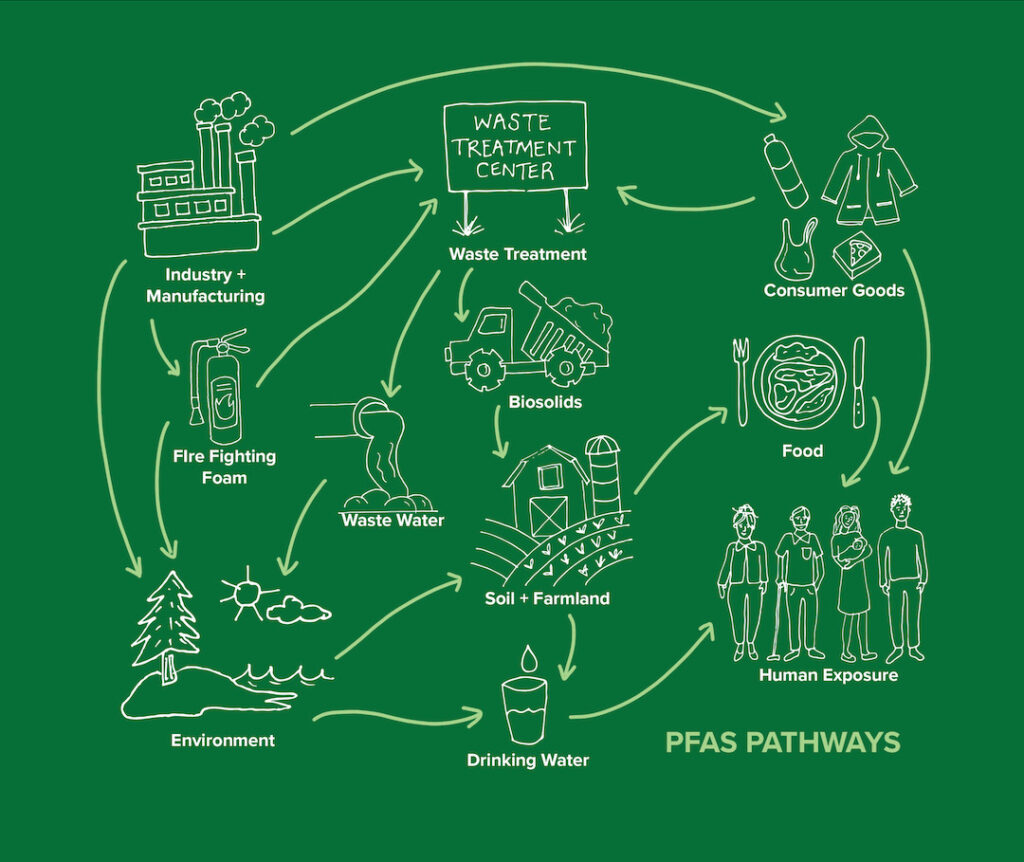In Maine we have seen firsthand the effect of per- and polyfluoroalkyl substances (PFAS) contamination of farmland on farmers. As of January 2024, at least 59 Maine farms, both conventional and organic, have been found to be contaminated with PFAS. The Maine Organic Farmers and Gardeners Association (MOFGA) has shifted our work to aid farmers addressing PFAS contamination and create better safety nets for those impacted, but this is a nation-wide problem and meaningful change will require federal action. To date, the primary source of PFAS contamination has been traced to the use of biosolids and paper mill sludges, either applied to farmland as soil amendments or “disposed of” by spreading on fields. The continued use of biosolids as fertilizers is contributing to widespread contamination of soil, water, and food with PFAS, posing significant risks to public health and the environment. The U.S. Environmental Protection Agency (EPA) must take action to ban the land application of biosolids under the Clean Water Act.
Under the Clean Water Act provision enacted in 1987, the EPA must biennially identify toxic pollutants in biosolids and adopt regulations to prevent harm. Despite identifying over 250 pollutants in the past 35 years, the EPA has promulgated only nine sewage sludge regulations for land application. This regulatory inaction is unacceptable given the mounting evidence of PFAS contamination from biosolids. The EPA’s own proposed drinking water levels acknowledge that there is no safe level in drinking water for at least two types of PFAS found in biosolids. These substances are known to accumulate in humans and animals, leading to severe health effects, including cancer, liver damage, and immune system dysfunction. Every application of biosolids increases PFAS levels in soils and waters, exacerbating the contamination problem.
It is imperative that the EPA take immediate action to ban the land application of biosolids to prevent further contamination by so-called “forever chemicals.” The health and safety of the public, as well as the integrity of our environment, depend on the EPA fulfilling its legal and ethical responsibilities. That is why MOFGA recently announced our intention to sue the EPA for failure to regulate PFAS in sludge under the Clean Water Act. Help us put the pressure on the EPA by writing a letter of support.

